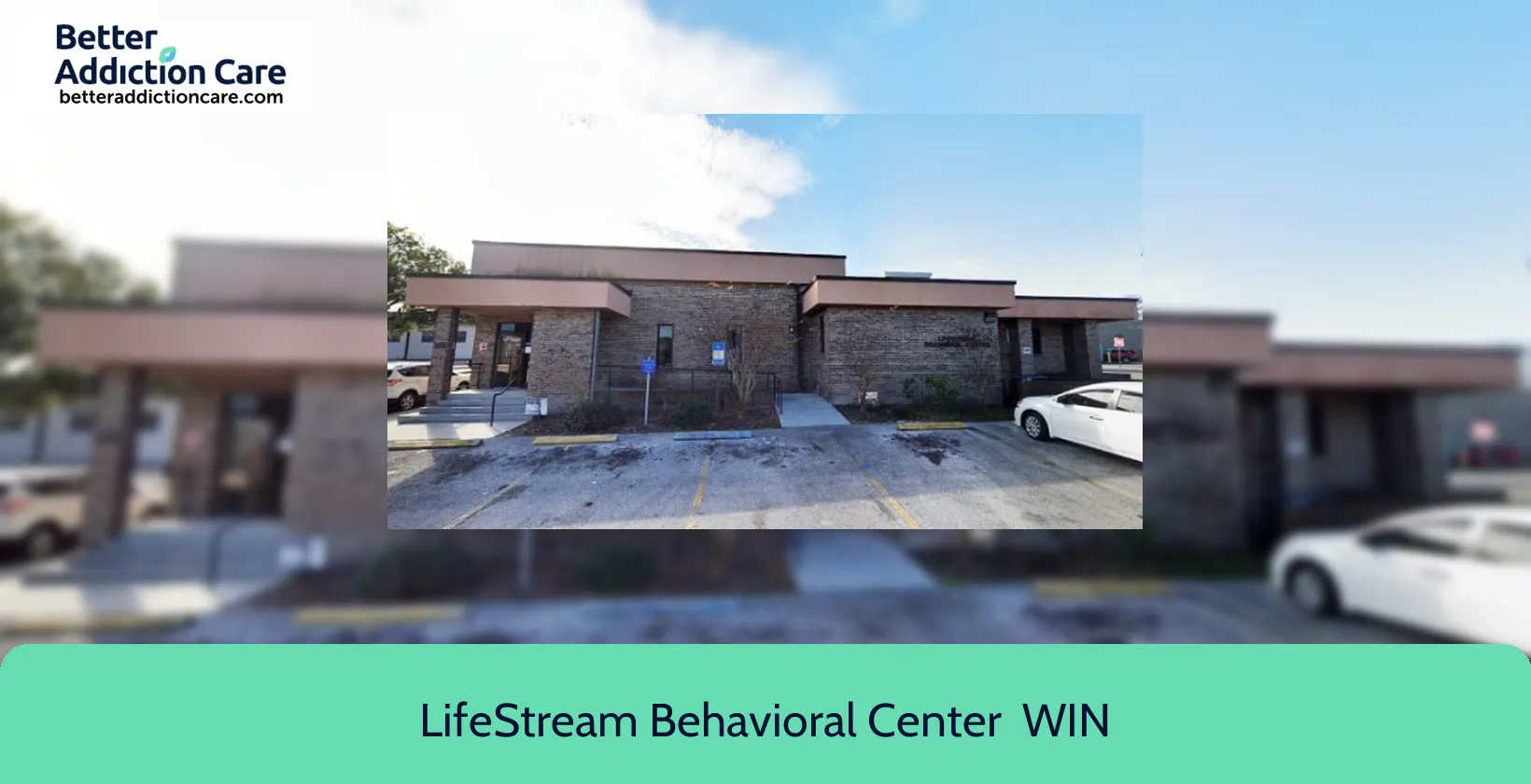Overview
The goal of Leesburg, Florida's LifeStream mental Center is to serve the needs of the people living in Lake and Sumter Counties in terms of mental healthcare. LifeStream offers vital services that treat a variety of mental health and drug use disorders via an extensive continuum of care. As a company that is steadfast in its commitment to "Supporting Recovery, Promoting Health, and Creating Hope," LifeStream is committed to enhancing the wellbeing of its clients, encouraging recovery, and assisting people in taking back control of their lives, reestablishing connections with their communities, and appreciating satisfying relationships.
LifeStream was founded in 1971 as a stand-alone non-profit organization. Since then, it has grown rapidly, running twenty-eight sites with fifty-two programs that help people with mental illness and drug addiction rehabilitate and become resilient. LifeStream has improved the lives of hundreds of thousands of people over the years by offering top-notch social and behavioral health services. LifeStream provided services to 27,644 distinct customers with over 415,000 visits in 2020 alone.
A multispecialty team of mental health specialists, including psychiatrists, advanced registered nurse practitioners, psychologists, social workers, nurses, case managers, therapists, and counselors, forms the foundation of LifeStream's treatment philosophy. To guarantee that each person receives the finest treatment possible that is customized to meet their unique requirements, this integrated team collaborates. For the purpose of meeting the medical requirements of those enrolled in residential programs or getting hospital care, LifeStream also enters into contracts with doctors and physician assistants. The team also acts as advocates as needed and connects families to essential community resources including medical, mental, and counseling services.
LifeStream is committed to achieving strict criteria in the area of behavioral healthcare, as shown by its accreditation by the Commission on Accreditation of Rehabilitation Facilities (CARF), which reflects their pursuit of the greatest quality of treatment. State and federal regulatory bodies also conduct yearly assessments of their services to guarantee continued quality care delivery and compliance.
The Board of Directors of LifeStream is made up of volunteers from the community, who make sure the organization never loses sight of the needs and goals of the people it serves. LifeStream is committed to enabling people to attain recovery, resilience, and an improved quality of life. They do this by consistently expanding their outreach and improving their services.
LifeStream Behavioral Center - WIN Clinic at a Glance
Payment Options
- Cash or self-payment
- Medicaid
- Medicare
- State-financed health insurance plan other than Medicaid
- Private health insurance
Assessments
- Screening for tobacco use
- Comprehensive mental health assessment
- Comprehensive substance use assessment
Age Groups
- Children/adolescents
- Young adults
- Adults
- Seniors
- Adolescents
Ancillary Services
- Chronic disease/illness management
- Court-ordered outpatient treatment
- Integrated primary care services
- Suicide prevention services
Highlights About LifeStream Behavioral Center - WIN Clinic
7.03/10
With an overall rating of 7.03/10, this facility has following balanced range of services. Alcohol Rehabilitation: 8.00/10, Drug Rehab and Detox: 6.00/10, Insurance and Payments: 6.67/10, Treatment Options: 7.46/10.-
Alcohol Rehabilitation 8.00
-
Treatment Options 7.46
-
Insurance and Payments 6.67
-
Drug Rehab and Detox 6.00
Accreditations
Commission on Accreditation of Rehabilitation Facilities (CARF):

CARF accreditation is a prestigious recognition for organizations in rehabilitation and human services. It signifies that an organization meets rigorous quality standards and is committed to providing top-notch care. Achieving CARF accreditation involves a thorough evaluation process, including on-site surveys, to ensure excellence in programs and services. This accreditation boosts an organization's credibility, assures clients and funders of quality, and promotes ongoing improvement in the field of rehabilitation and human services.
Registration: 220672
Treatment At LifeStream Behavioral Center - WIN Clinic
Treatment Conditions
- Alcoholism
- Mental health treatment
- Substance use treatment
- Co-occurring Disorders
- Opioid Treatement
Care Levels
- Outpatient
- Detoxification
- Outpatient detoxification
- Intensive outpatient treatment
- Hospital inpatient detoxification
Treatment Modalities
- Couples/family therapy
- Group counseling
- Cognitive behavioral therapy
- Dialectical behavior therapy
- Integrated Mental and Substance Use Disorder treatment
Ancillary Services
Languages
- Sign language services for the deaf and hard of hearing
Special Programs
- Clients with co-occurring mental and substance use disorders
- Clients who have experienced trauma
- Persons with post-traumatic stress disorder (PTSD)
Contact Information
Read our Most Recent Article About Drug Addiction
DISCLAIMER: The facility name, logo and brand are the property and registered trademarks of LifeStream Behavioral Center - WIN Clinic, and are being used for identification and informational purposes only. Use of these names, logos and brands shall not imply endorsement. BetterAddictionCare.com is not affiliated with or sponsored by LifeStream Behavioral Center - WIN Clinic.









